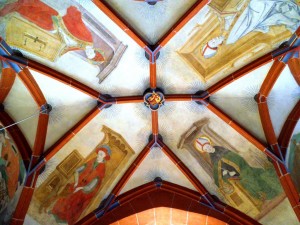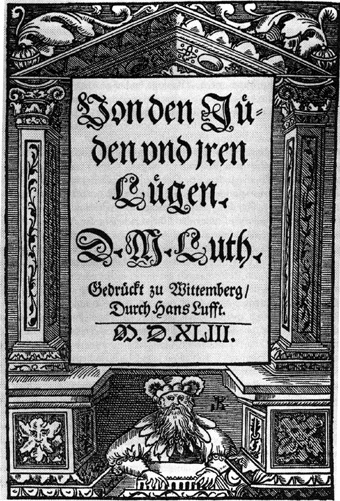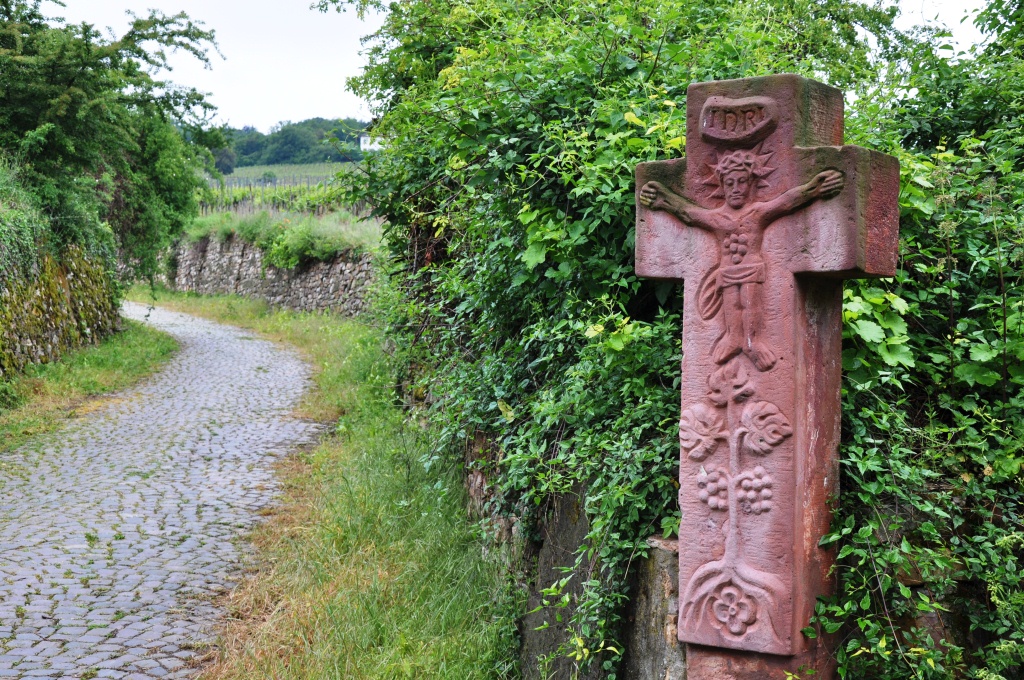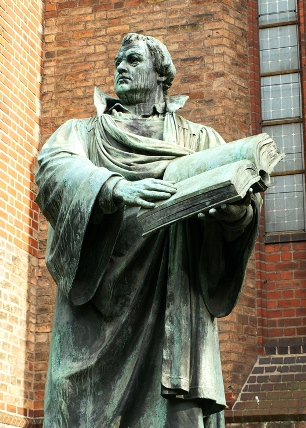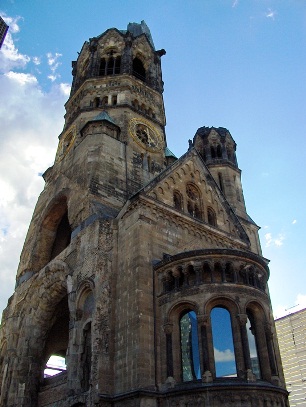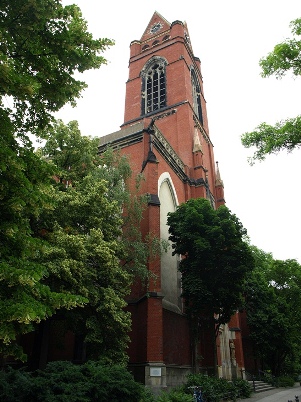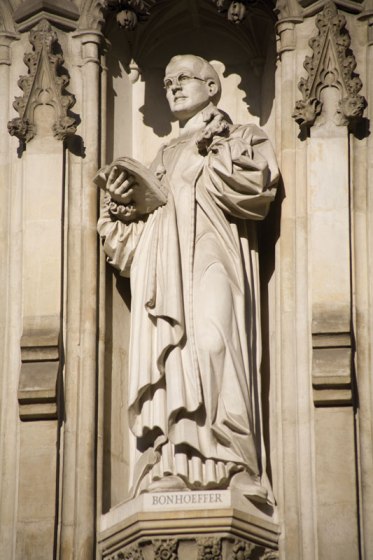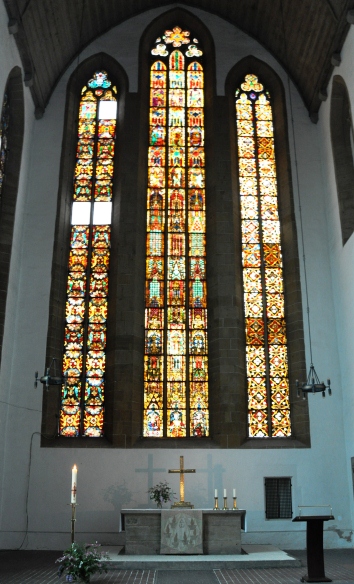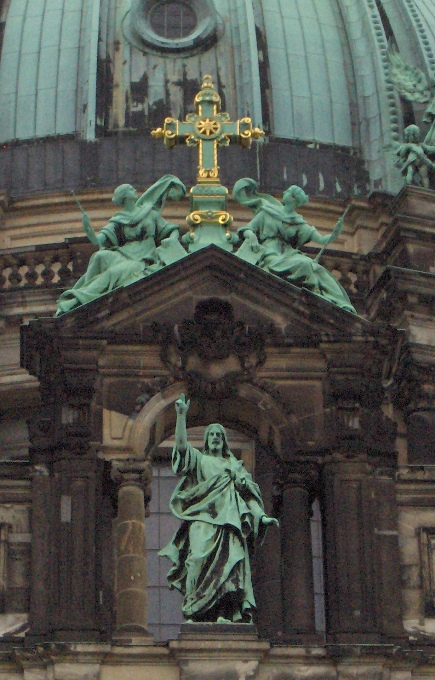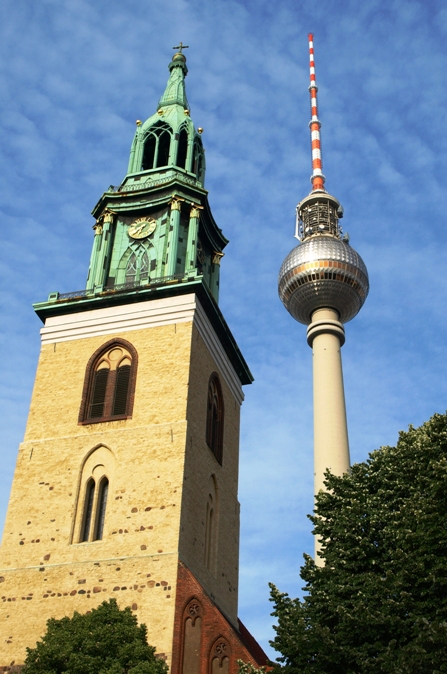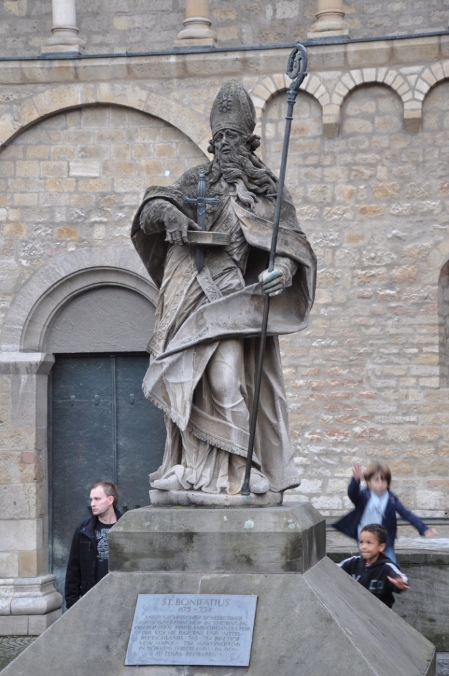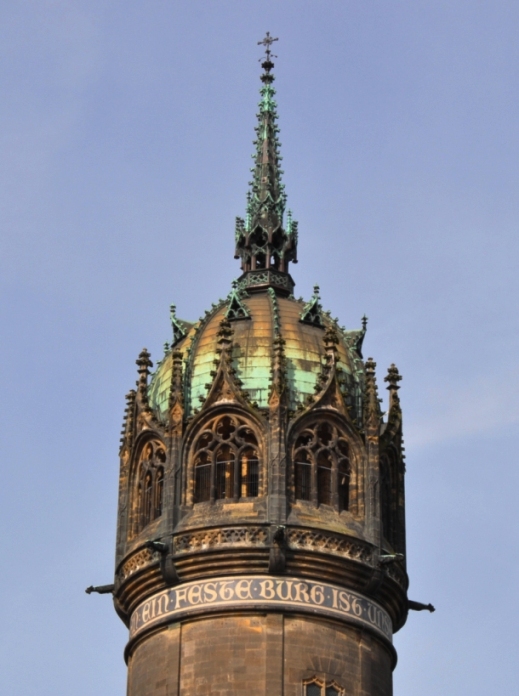ACCH Quarterly Vol. 17, No. 4, December 2011
Letter from the Editors: December 2011
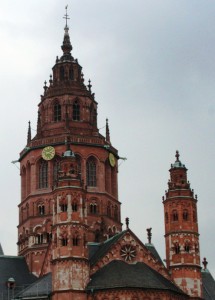
St. Martin’s Cathedral, the thousand-year-old seat of the Archbishop of Mainz.
It was exactly seventy years ago that the Bishop of Chichester, George Bell, took the striking step of writing a Christmas message to be broadcast by the BBC to his friends in the churches of Germany. For Bell, the message affirmed the unity of all Christians, however they may be divided by national borders and all the extremities of war. Naturally, such a message was acceptable to his own government: it offered its own, unequivocal condemnation of the evils of Nazism and marked a clear line between the ideology of the Hitler regime and the faith of Christians everywhere. Bell addressed some of his words directly to Martin Niemoeller.
In this December issue of the ACCH Quarterly, the broadcast of 24 December 1941 might also remind us that the issues which arose in Germany between 1933 and 1945 were at once the concern of observers, friends and allies abroad. They, too, became participants in the tragic history that unfolded in these years. And we might continue to reflect on the importance of pursuing our own international friendships in a world where creative intellectuals and men and women of faith still seek to make their voice heard in countries governed by dictatorship, repression and alienation.
On behalf of the editors,
Andrew Chandler, University of Chichester
Bishop George Bell of Chichester, BBC Christmas Message to Germany, 1941:
I AM talking to all Christians in Germany; for all Christians in Germany are oppressed. Many of you are my friends, and it is impossible to forget you now. I am a poor hand still at speaking German, and so I have asked a German pastor who is your friend and my friend, Pastor Hildebrandt of the Confessional Church, to read what I want to say.
This Christmas Eve I want to give you my heart-felt greetings as a fellow Christian. In the years before the war many of us worked together in closest fellowship on the tasks of the Church. My mind goes back to the meetings at the Wartburg of German and British scholars, with Archbishop Soderblom in the midst; and to another memorable conference at Eisenach a year or two later. Some of you have been my guests at the Palace in Chichester. Do you remember that walk, Doctor, in a rather muddy field one spring afternoon, with the Cathedral spire behind us, when we talked of the German Evangelical Church and its organisation? I thank God for the strong stand you have been taking ever since 1933 against those who are trying to destroy Christianity within the German nation. I think of some of you in your homes in Marburg, Hanover and Berlin, where you made me so welcome. I can picture you now, watching the Christmas tree, and thinking of the absent sons and daughters. Do you remember, old friend in Berlin, an evening party of Confessional Church leaders in your house four years ago, when we discussed the latest news of the German Church conflict? I can see your wife and daughter now, so courteously helping us all at the table. How vivid the talk was, and how friendly! Do you remember the young pastor saying, with such prophetic truth, that once a revolution had started like the Nazi revolution, its very logic compelled it to go where the extreme men drove it?
Well, the Nazi revolution has gone where the extreme men drove it, with a vengeance. The Nazi leaders have dealt sharper and sharper blows at the Christian Church. They have attacked everything for which Christianity stands in Germany. And the logic of their attack is compelling them now to try to destroy everything for which Christianity stands all over the earth.
Christmas means Christ and His rule of love. It brings good tidings of great joy, and speaks of peace and goodwill. Could anything be in greater contrast to the injustice and violence with which those who persecute the Evangelical Church and the Catholic Church would enslave all nations? It is good to remind one another on Christmas Eve that you and I have a bond as fellow Christians which all the anti-Christian forces in the world are powerless to destroy.
I remember the sermon Pastor Niemöller preached on New Year’s Day, 1937, in Dahlem, only a few months before his imprisonment. He was very frank about the fight the Nazis were waging against faith in Jesus Christ. But he was full of encouragement. Christians, he said, are not to imagine that they are alone, a forlorn little group, facing certain ruin. ‘In the world nothing counts but what men can see. But God’s Word decrees otherwise. God’s Word speaks plainly enough, even concerning very high personages. … It is truly not worth our while to hang our heads and to be afraid because the wicked spring as grass and the evildoers flourish as though their power were eternal. They spring as grass – yes, but, says God’s Word, only as grass, and they flourish-yes, says God’s Word, but only until they be ‘destroyed for ever.’
Ah, Martin Niemöller, my friend, I rejoice to hear your brave voice. I rejoice to hear your voice too, Bishop Wurm in Stuttgart, and yours, Bishop von Galen in Münster; and all the other voices, soft or loud, which swell the chorus of those who speak up for Christ and His Church in these days when wickedness walks the earth, and destroys freedom, and takes its ghastly toll of human life.
Believe me, fellow Christians in Germany, we understand you. You are not alone. Keep up your faith. Help to save your country’s soul by resisting the evil spirit by which it is now possessed. Your fellow Christians everywhere are by your side. Your struggle is our struggle. The days are dark, but Christmas brings salvation. Light will break through. Hold fast, never yield. Trust in the Power of God, and the Love of Christ.
24 December 1941
